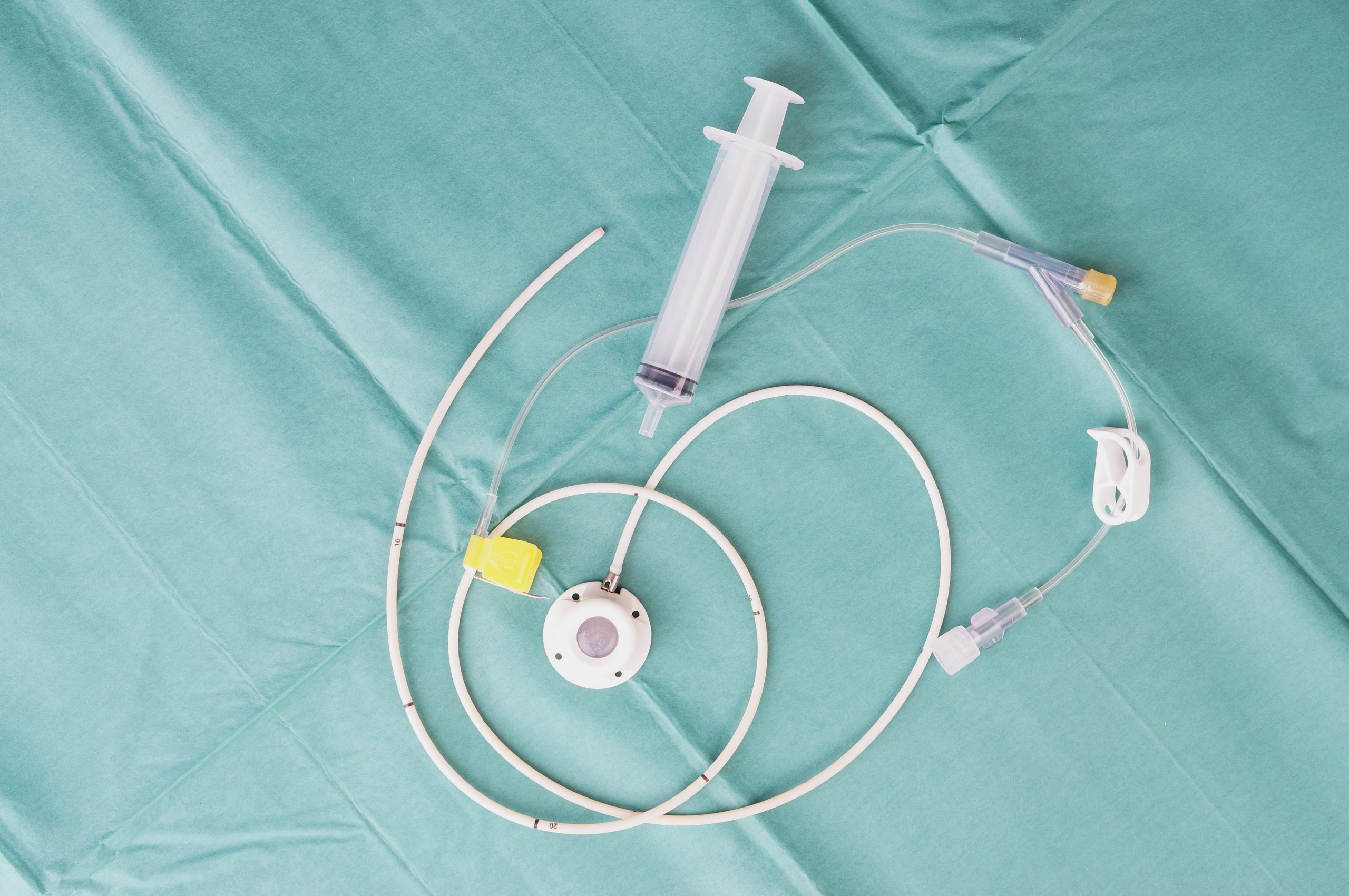Most oncologists recommend administering chemotherapeutic drugs through the bloodstream using vascular access devices. These devices utilize a catheter in a patient’s central vein and allow chemotherapy to be delivered over a period of time and remove the need for repeated venous punctures. There are different types of vascular access devices, each of which has a different use and advantage. Before patients receive treatment for liver cancer, their doctor will work with them to determine which vascular access device is right for them.
Central Venous Catheter (CVC)
A central venous catheter (CVC) is a long and flexible y-shaped tube that is inserted through a central vein in the neck, chest, or groin. Compared to a standard IV line, this catheter is placed deeper within the body and can remain in the body for a longer period of time. The two types of central venous catheters include tunneled and non-tunneled catheters. Tunneled central venous catheters are placed under the skin and in a vein, allowing long-term access to the vein. In comparison, non-tunneled catheters are designed to be temporary and may be placed into a large vein near the neck, chest, or groin. If you are receiving long-term treatment for liver cancer, a CVC provides easy access to your bloodstream for medical providers to administer chemotherapy, draw blood, and for other purposes.
Peripherally Inserted Central Catheter (PICC)
A peripherally inserted central catheter (PICC) is a long, thin tube that is placed into a large vein in the arm by an oncologist or well-trained nurse. When it is placed, the catheter is threaded through a superficial vein in the arm until the tip reaches a larger vein above the heart. This catheter is then secured to the skin using an adhesive device, internal securing device, or with stitches. PICCs are optimal for liver cancer patients who need extended courses of chemotherapy because it remains in the body for weeks or months until treatments are completed. In addition, PICCs spare patients from multiple needle sticks every time they need treatments, improving overall patient comfort and quality of life.
Implantable Ports
Implantable venous ports are commonly used for patients with liver cancer and are considered an essential part of treatment. The port allows reliable and long-term access for drawing blood, providing nutrition, and administering fluids and medication with minimal disruption to the patient’s life. An implantable port includes a catheter inserted through a large vein in the patient’s upper chest or arm and connected to a port in a pocket under the skin. The port will feel like a small bump on the skin and can be accessed with a needle that is inserted through the skin into the rubber round part of the port. Implantable ports will remain securely in place and patients can easily receive chemotherapy on a weekly or monthly basis.
Vascular Access Devices for Liver Cancer Treatment at USA Oncology Centers
At USA Oncology Centers, our interventional oncologists are experts in providing minimally invasive procedures for long-term vascular access for liver cancer treatment. This includes placing tunneled venous catheters or ports to make chemotherapy a much easier and comfortable process. To schedule an initial consultation or learn about the treatments we offer, call USA Oncology Centers at 855.870.4747 today. We look forward to being a part of your care team and are dedicated to providing you with the highest standard of care.
disclaimer+++
The information in blog articles is for information purposes only. The content is not intended to be a substitute for professional medical advice, diagnosis, or treatment. Please always consult a licensed healthcare professional for advice on any specific medical condition or any changes to your healthcare decisions.

